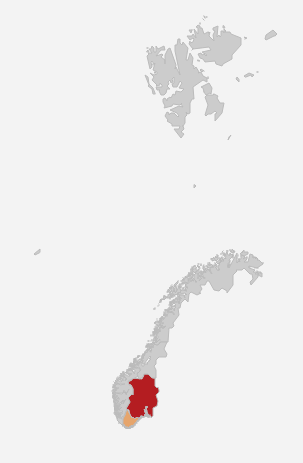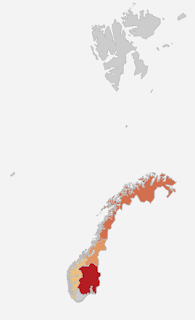It has been ages since I've done this, so I thought I would revisit the biggest blocks in my family tree.
Here are the branches I'm focusing on at this time:
- Seneft (also Senft and Senefft) and Hillinger (also Hilinger)
- Kresch and Reich
- Park and Dunlop
- Curran and Blair
- Jones and Griffths
- Roberts and either Griffiths or Pugh
Seneft/Hilinger/Kresch/Reich Lines
I have made some small movement on these lines since delineating them. I now know all of my great-grandparents' siblings, and the names of the places they were born. I've managed to get in touch with a few cousins out there with helped with both, but it still has gotten no further back. As of this time.
As I said in my last post, I now know all my great grandparents' siblings, thanks to two different distant cousins, one in England, and one in Israel. I've also found a small handful of records, and have a long list of questions about both sides.
For the Senefts, I don't know when they left Galicia, where my great-grandfather was born, and came to England. I also discovered, through my grandfather's draft papers, that apparently Alex, his father, was in the military in 1899, during the Boer War. I don't know anything about his service, just the date, and that he obviously survived, or we wouldn't be here today. I also don't know Alex's sisters' Hebrew names, or his younger brother's Hebrew name. Anne, Jennie, and Jack, all I have is their Anglicized name. I also have had no further luck learning who Lewis Greenbaum was beyond either Leon or Mindel's nephew, but I keep looking for him, too.
For the Kresches, I have less info, but also less questions. I don't know what happened to my great-grandmother's brother Chaim/Haim after World War I (though I can guess). I also don't know when her father died. Unfortunately, in both these questions, I have little hope of finding more information, given how "unimportant" any records related to these two things were to the non-Jewish population in those areas, so I have little hope of finding more information.
In both families, I have no ancestors before my great-great grandparents, or am I certain where any of them were born, though I presume most if not all were born in Galicia.
If you have any information on any of these families that might answer these questions, I would love to talk to you.
Park/Dunlop/Curran/Blair
This one's seen some great movement, thanks to my cousin Kate, who has been pushing and pushing at the Park branch in particular, and who will be going to Ireland sometime soon. We now know for certain that our mutual ancestors were David Park and Mary Dunlop, whose son married Elizabeth Curran and came to the US and had their children there before returning to Ireland for a time before moving to and settling in Canada.
There is also the more recent version of Ancestry's DNA, which shows both of our ancestry as far more Scottish than either of us suspected. From this, I presume that most of my Irish family actually came from Scottish stock, likely from one of the periods when it was easier to live in Ireland than Scotland. Park, Dunlop, and Blair are all very Scottish surnames, particularly Dunlop, so I presume most of my DNA was inherited from these lines. Curran is a very northern Irish name, so in that case, that's probably where I get my small amount of Irish DNA.
For the Park line, I actually believe we've answered all the questions I had in my last Brick Wall post here. So at the moment, this one is good, because we got at least one more generation back on this line, and until we can firm up some of this information, I actually think this line is good.
As for Curran and Blair, nothing new has happened, but since all my questions were on the Park line, I think this one is good as well. So for now, I will let my Irish branch lie until I get further back in my bigger Brick Walls.
Jones/Griffiths
Like the Park line, I've had some success on one branch, and almost no more on the other. In this case, I have gotten no further on David and Mary Jones, given their far too common names. The Griffiths line, on the other hand, has grown far back, thanks to work others have done on Ancestry. I haven't entirely proven this branch, but I have so many more names, that I think that one's done for a good long time. So I will focus on Jones on this line for now.
At this moment, I need to know more about David Jones. Particularly where he was born, who his parents were, and what he did for a living. Mary, I have no surname for, so I would love to know who she was born to, and where, and how she met David. I also would like to know why the family came to Merthyr Tydfil. Did they all come there together? Did something happen with David, so only Mary and the two boys I currently have for them come to the town? I presume, from the fact that both Caio and Merthyr Tydfil had connections to mining, that perhaps David was involved in the Welsh mining industry?
Jones is a hard one, because the names are so common that narrowing it all down is still almost completely unhelpful, but I do keep looking.
Roberts
I have made absolutely no movement on this branch at all. All I know is that Hugh and Ellen had two daughters, and not if they had any other children. I still don't know for certain what Ellen's maiden name was, Pugh or Griffiths. At the moment, I have Hugh listed as being born 1819 in Merionethshire, Wales, and Ellen Pugh (how she was listed on my great-grandmother's death record) as being born in 1824, also in Merionethshire.
Currently I have the 1851 census of the family, which lists Hugh, Ellen, and their two daughters, Selina (at four years of age) and Elizabeth (only a year old). It's the only Census I've found for them as of yet, but it tells me several things--one, that they lived in the same area as Selina's husband-to-be, two, that she was their eldest (surviving) child, and three, gives me Hugh and Ellen's general age. Everything else is still very up in the air.
I also have a birth record for Elizabeth in 1850 that lists Hugh as a Driver, and that the family live in Beaumaris. Again, answers no questions, though the addition of a job for Hugh is nice.
In an attempt to verify what proofs I have, I just discovered one more generation back. Because of this birth record, I know when Elizabeth was born, so I looked to see if there was anything else for her, only to discover a record of a 1861 Census showing her with her grandmother, Catherine Roberts. So I now believe that Hugh's mother was Catherine. The location is right, and the info for Elizabeth matches her exactly. So I just managed to find one step further back in my tree on this branch. In going through information on Ancestry, I can't prove more, but if what I've found is right, her husband may be Richard, though I have not yet settled on that, as I have a lot to go through before I decide that is correct, since the information doesn't give me enough to match precisely. So there you go, folks. Always remember to check through the records you have to see if anything new crops up. Ancestry and other sites are always updating their information. You never know what you might find.
But that said, a single name for Hugh's mother isn't enough to call this unblocked. I still don't entirely know his family. I need to find something that connects him to a Richard or another father to firm this up. I also want to know if he had any siblings, and whether he and Ellen had any other children. I did see one person on Ancestry had parents for Ellen, but no record proofs, so I don't know where those parents came from, so I have not assumed they are correct at this time, which means I need her parents still.
I'd love to talk to anyone who shares this branch of their family tree with me. Any help digging further back would be greatly welcome.



















